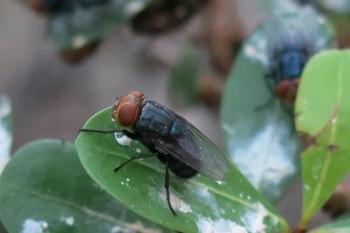
Putting the freeze on parasites
Many clients don't realize flea, tick, and heartworm prevention continues to be necessary even when the temperature dips. Here are some ideas on how to jump-start an educational conversation.
Many clients don't realize flea, tick, and heartworm prevention continues to be necessary even when the temperature dips. It's up to you to teach them that parasites don't take a winter vacation, so they shouldn't take a snow break from prevention. Janessa Dickson, head veterinary technician at Central Kansas Veterinary Center in South Hutchinson, Kan., gives some ideas on how to jump-start this educational conversation.
You: Brrr! Winter has definitely arrived, hasn't it?
Client: Oh, yes. It's just freezing out there. And I've heard it's only going to get worse.
You: You know, lots of people think the winter months are too cold for fleas, ticks, and mosquitoes. Unfortunately, that's not the case.
Client: I thought all those pests died off in freezing temperatures.
You: Actually, fleas do survive during the winter, especially indoors. And the same can be true for ticks and mosquitoes. Warm homes and cozy fur provide perfect places to hide from the cold. That's why pets need year-round parasite prevention. It minimizes health risks, prevents a dreaded flea infestation, and provides relief to you and your pet. Do you have any preventives at home, or can we get you some at the end of today's visit?
Newsletter
From exam room tips to practice management insights, get trusted veterinary news delivered straight to your inbox—subscribe to dvm360.






